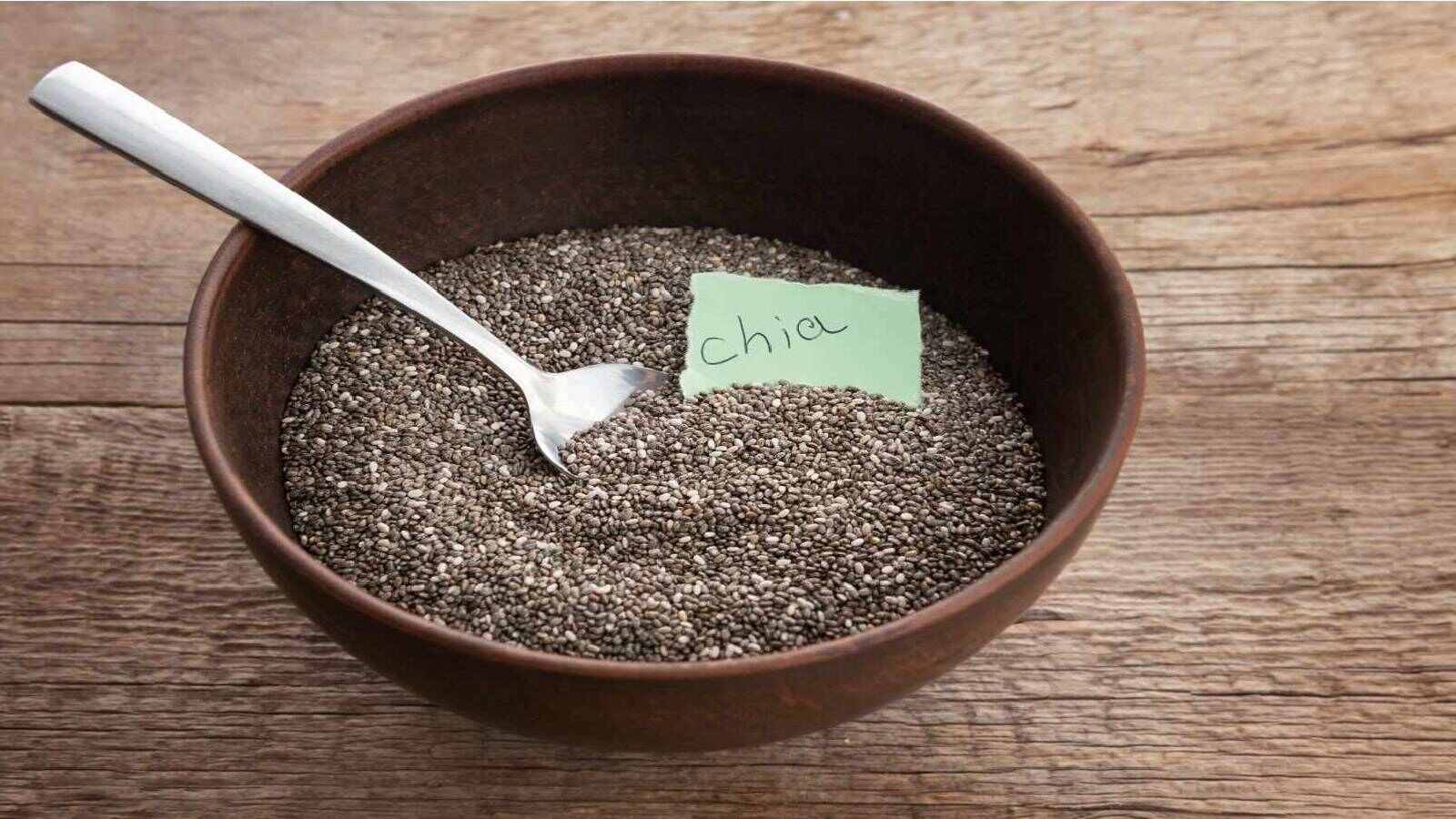
Chia Seeds: A Natural Remedy for Gastritis and Digestive Discomfort
5 months ago | 5 Views
Chia seeds, small and black with an oval shape, are often recognized for their potential benefits in weight management. This advantage is likely attributed to their high fibre content, which adds bulk and promotes a prolonged sensation of fullness. Sourced from the flowering plant Salvia hispanica, these seeds may also contribute positively to digestive health. When exposed to liquid, they swell and develop a gel-like consistency, containing various beneficial elements such as polyphenols, antioxidants, and omega-3 fatty acids. Given these properties, incorporating chia seeds into one's diet may be beneficial for alleviating gastritis symptoms, as they can help reduce stomach inflammation.
What is gastritis?
Gastritis refers to the inflammation and irritation of the stomach lining. This condition can result in symptoms such as stomach pain, indigestion, and a sensation of fullness and bloating, as noted by the UK's National Health Service. Additionally, it may contribute to increased burping and flatulence. The causes of gastritis include infection by the bacterium Helicobacter pylori, the use of anti-inflammatory medications like aspirin and ibuprofen, excessive alcohol consumption, and high levels of stress.

Chia seeds for gastritis: Know why to eat them
Consuming chia seeds may prove advantageous for individuals suffering from gastritis. Below are how they can assist:
1. Reduces inflammation
These nutritious seeds are rich in omega-3 fatty acids, which possess anti-inflammatory characteristics. Research published in the Journal of the American College of Nutrition in 2002 suggests that they may be beneficial in managing inflammatory conditions. Clinical dietitian Fiona Sampat states, "These assist in diminishing inflammation in the stomach lining and alleviating associated symptoms."
2. Improves gut microbiota
Consuming chia seeds may be beneficial for individuals with gastritis, as they contribute to restoring equilibrium between beneficial and harmful bacteria in the gastrointestinal tract. Chia seeds are rich in both soluble and insoluble fiber. The soluble fibre functions as a prebiotic, nourishing the advantageous bacteria in the gut. An expert notes that "an imbalance in these will lead to gastric discomfort and inflammation."
3. Packed with antioxidants
Chia seeds are packed with antioxidants. They are a great source of polyphenols and antioxidants such as caffeic acid, quercetin, and rosmarinic acid, as per research published in the Molecules journal in 2019. They have anti-inflammatory properties, and so may reduce oxidative stress and help manage gastritis.
How to use chia seeds for gastritis?
Chia seeds can be utilized for managing gastritis in several effective ways:
Chia water: Incorporate 1 to 2 teaspoons of chia seeds into a bottle of water and sip throughout the day. To enhance the flavour, consider adding a squeeze of lemon or ginger juice, as recommended by Sampat.
Mint cooler: Combine 1 to 2 teaspoons of chia seeds with mint leaves in water and consume it throughout the day.
Chia seeds with coconut water: Mix chia seeds into a glass of coconut water. This combination is believed to provide a cooling effect on the stomach and assist in neutralizing stomach acidity, according to expert advice.
Chia seeds with aloe vera juice: Aloe vera is known for its soothing and cooling properties for the stomach. When paired with chia seeds, it amplifies the calming effect and aids in alleviating stomach irritation. Additionally, research published in the Journal of Research in Medical Sciences in 2013 indicates that aloe vera can help reduce stomach pain, discomfort, and flatulence.
Chia pudding: Combine 2 teaspoons of chia seeds with either dairy or plant-based milk and refrigerate overnight. You may add a fruit topping, such as a banana, to create a nutritious breakfast option.
Sprinkle them: Enhance salads, smoothies, and yoghurt by sprinkling chia seeds on top.
Use as a coating: Apply chia seeds as a coating for chicken or fish to add texture and nutritional value, serving as a substitute for breadcrumbs.
Use in baking: Two teaspoons of chia seeds mixed with water can serve as an egg replacement in baking recipes.
The best time to have chia seeds for gastritis
Chia seeds can be ingested at any time during the day for relief from gastritis. Nevertheless, the optimal time to consume these superfoods is in the early morning, ideally on an empty stomach. This practice is beneficial for enhancing metabolism, attributed to their high fibre and water content, according to the expert.
A daily intake of up to 2 teaspoons of chia seeds is recommended. However, it is advisable to begin with smaller quantities to prevent any gastric discomfort that may arise from their elevated fibre content.

What are the side effects of having chia seeds for gastritis?
Chia seeds serve as an excellent source of dietary fibre. According to the U.S. Department of Agriculture, a hundred grams of chia seeds contain 33.3 grams of fibre. However, excessive consumption may result in:
- Bloating
- Gastric discomfort
- Gas
Sampat notes that an increase in chia seed intake, particularly without sufficient water consumption, can lead to constipation, as both fibre and hydration are essential for proper bowel function. Additionally, consuming large amounts of chia seeds may cause diarrhoea, especially for those unaccustomed to high-fiber foods.
In moderation, chia seeds can be beneficial for alleviating gastritis symptoms due to their high fibre content, anti-inflammatory properties, and ability to support gut health. They may help alleviate symptoms and protect the stomach lining when consumed appropriately. To avoid digestive issues, it is advisable to begin with small quantities, ensure adequate hydration, and monitor your body's response to these seeds.
Read Also: Looking to Shed Pounds and Enhance Gut Health? Research Suggests This Fermented Food
HOW DID YOU LIKE THIS ARTICLE? CHOOSE YOUR EMOTICON!
#




















